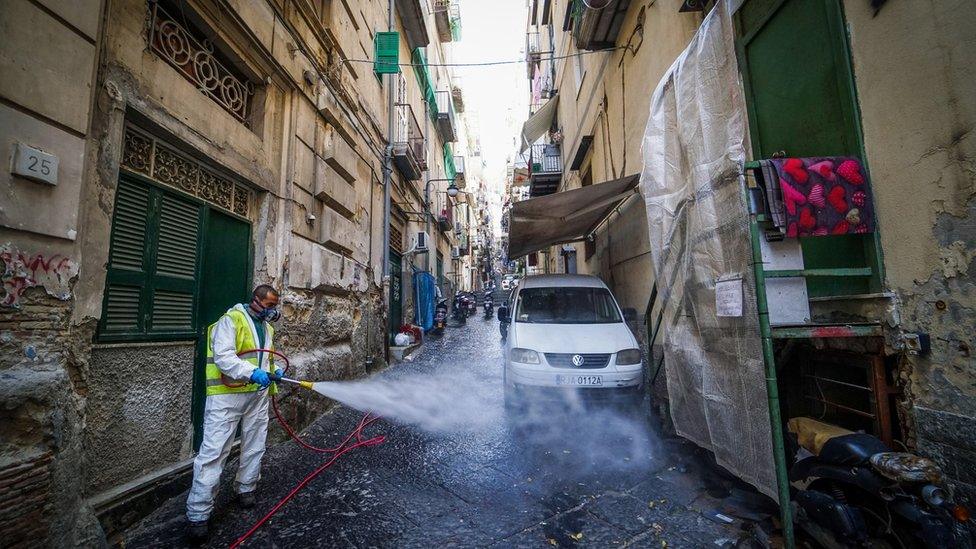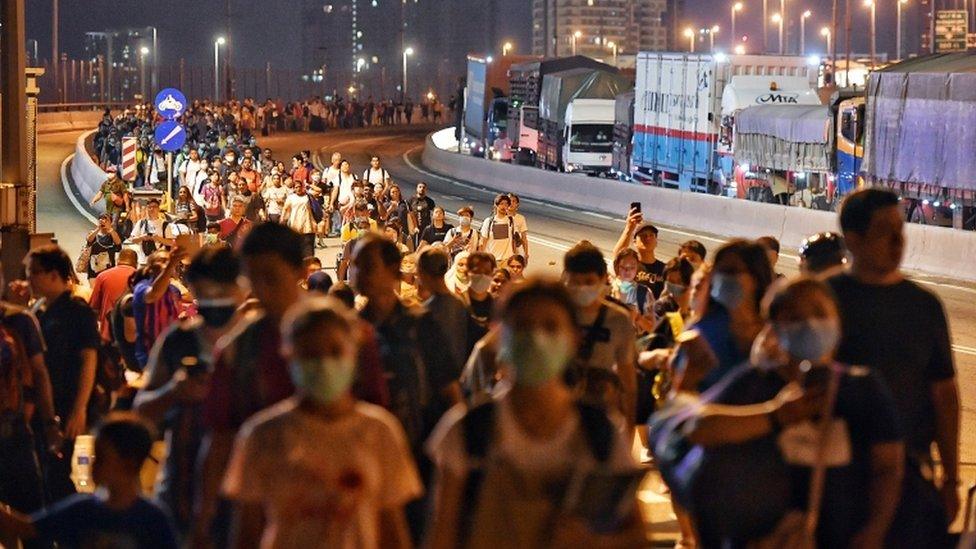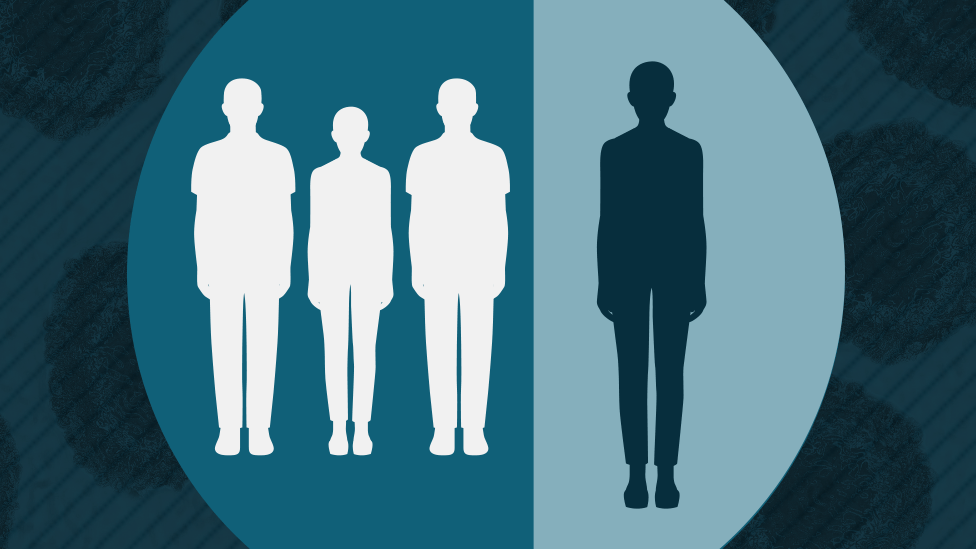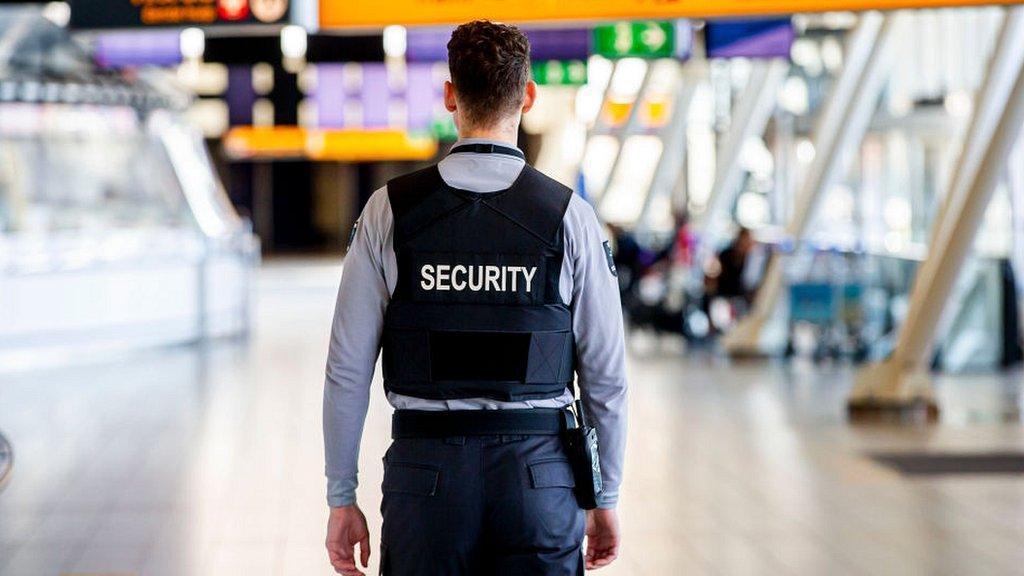Italy coronavirus deaths rise by record 475 in a day
- Published

Italy is the world's worst affected country after China
The number of people dying from coronavirus in Italy has risen by 475 in one day to nearly 3,000 - the biggest increase since the outbreak.
There are a total of 35,713 confirmed cases in the country, with more than 4,000 having successfully recovered.
Lombardy, the worst-hit region, recorded 319 deaths in one day.
Italy is the world's worst affected country after China, where the virus originated last year. At least 8,758 people have died, most in China.
The vast majority of the more than 200,000 confirmed cases - 80% - have occurred in Europe and the Western Pacific region, which includes much of Asia, the World Health Organization (WHO) says.
Many countries have taken drastic measures, including social distancing and cancelling major events to help slow transmission and reduce pressure on the health systems.
"But to suppress and control epidemics, countries must isolate, test, treat and trace," the WHO chief Tedros Ghebreyesus said on Wednesday.


EASY STEPS: How to keep safe
A SIMPLE GUIDE: What are the symptoms?
NEW MEASURES: What is the UK advice?
TRAVEL PLANS: What are your rights?

Italy has been on lockdown for over a week as authorities try to halt the progress of the virus.
People have been asked to stay indoors - but the number of deaths has continued to spiral.


The WHO's emergencies director, Mike Ryan, said this was probably due to the "astonishing" number of cases within the health systems, as well as the high number of elderly people in the population at large.
Dr Tedros hailed the beginning of the first vaccine trial so soon after the emergence of the virus as "an incredible achievement".
Allow X content?
This article contains content provided by X. We ask for your permission before anything is loaded, as they may be using cookies and other technologies. You may want to read X’s cookie policy, external and privacy policy, external before accepting. To view this content choose ‘accept and continue’.

The first human trial of a vaccine began in the US at the Kaiser Permanente research facility in Seattle earlier this week. But experts warn that it will be many months before it is clear if it will work.
How bad is the situation in the rest of Europe?
Spain now has 598 dead and 13,716 infections. An inquiry is to be launched into the deaths of at least 17 residents of a nursing home in Madrid, where dozens of cases of Covid-19 have been reported.
In France, the number of confirmed cases grew by more than 16% on Tuesday, reaching 7,730, while the death toll rose to 175, with 7% of the dead aged under 65.
In the UK, the number of dead has reached 104.
Germany has 12 deaths and 8,198 cases. In a TV address, Chancellor Angela Merkel urged Germans to abide by restrictions aimed at combating the pandemic. "Since German reunification, actually, since World War Two, there has never been a challenge for our country in which acting in solidarity was so very crucial," she said.
Belgium has 14 deaths and 1,486 cases.
The cruise ship cancellations have led to cleaner canals in Venice
What's happening across Europe's borders?
Travellers from outside the EU are being turned away from airports and borders after the 27-country bloc imposed a 30-day ban to halt the spread of coronavirus.
EU leaders agreed that internal borders that have been erected in recent days should come down.
This temporary hospital, on the outskirts of Moscow, is designed to cater for 500 patients
The ban will not affect Europeans going home or cross-border workers.
UK citizens are also not affected by it because an interim Brexit deal still ties the UK to EU rules.
The ban specifically covers all EU states as well as countries within the Schengen border-free zone, including Iceland, Switzerland, Norway and Liechtenstein.
All citizens will be given help returning home, and Germany has said it will continue a drive to fly home tens of thousands of tourists stranded abroad, from Morocco and Egypt to the Philippines and Argentina.
In many countries, people have been urged to stay at home as much as possible and only essential travel is allowed.
Covid symptoms: What are they and how long should I self-isolate for?
- Published18 March 2020

- Published5 July 2022

- Published25 January 2022

- Published1 April 2020
